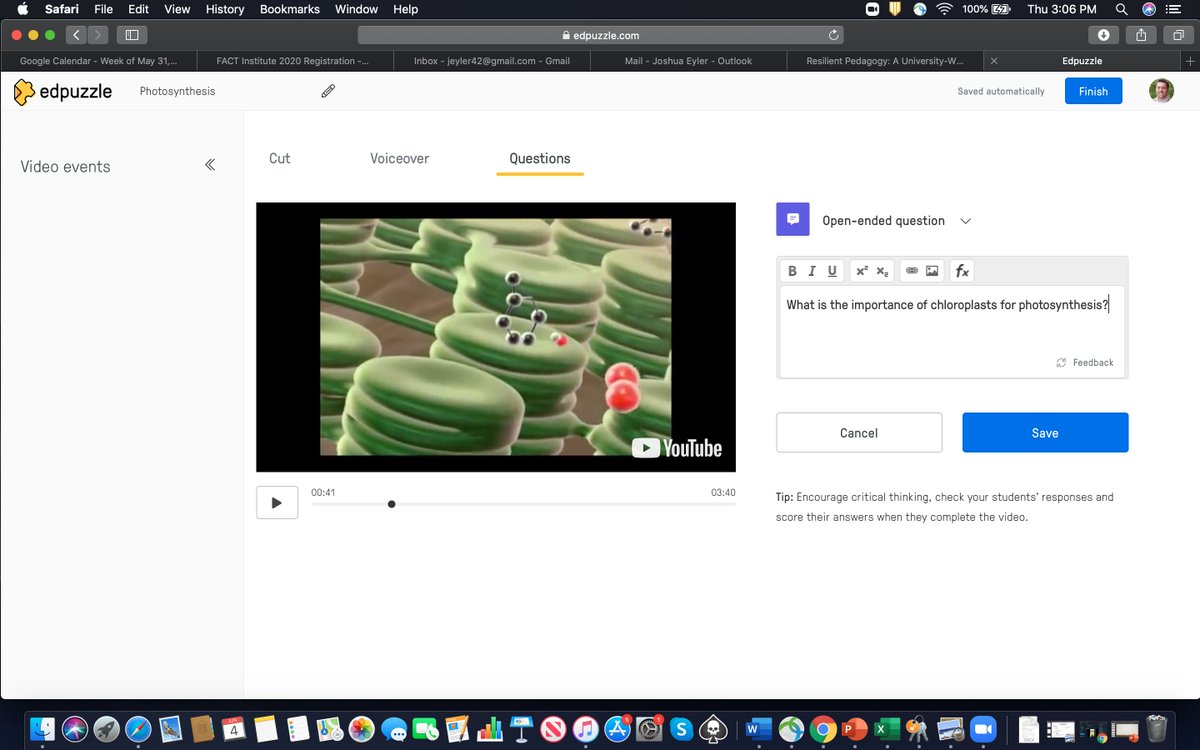
Clinical Assistant Professor & Faculty Development Director at @OleMiss | Author: How Humans Learn (@WVUPRESS) https://t.co/uJDw2At5Dq | Speaker: https://t.co/FJ0FaFky7R | he/him
How to get URL link on X (Twitter) App


 This is the crux of the author's argument. Notice how there is no evidence at all for these claims, no links to research, nothing. He is claiming that students are going through the intensive, expensive process to get accommodations fraudulently w/out proof. Think about that. 2/x
This is the crux of the author's argument. Notice how there is no evidence at all for these claims, no links to research, nothing. He is claiming that students are going through the intensive, expensive process to get accommodations fraudulently w/out proof. Think about that. 2/x 
https://twitter.com/Jessifer/status/1311446997262569474First, no matter how it is utilized, proctoring software adds to students' cognitive load. In addition to trying to take the test, they are dealing with the additional burden of "Are my eyes in the right place?" "I didn't move my head too much, did I?" etc. 2/x

https://twitter.com/joshua_r_eyler/status/1258416542674452488The debate, to my mind, centers on how much social interaction is necessary for *optimal* learning, and this is not really a f2f vs. online question. Large f2f lecture courses often have little social interaction too, so they don't score well in this area either. 2/


 In the video module (located on my website), we discussed 1) how the superheroes are the focus of discrimination because they are different, and the subject of difference comes up quite a bit in the Pixar films #PixarinApril josheyler.wordpress.com/pixar-in-april…
In the video module (located on my website), we discussed 1) how the superheroes are the focus of discrimination because they are different, and the subject of difference comes up quite a bit in the Pixar films #PixarinApril josheyler.wordpress.com/pixar-in-april…

 This is what Buzz sees when he goes into the living room. What do you notice here? What might the filmmakers be trying to tell us? Why soda? #PixarinApril
This is what Buzz sees when he goes into the living room. What do you notice here? What might the filmmakers be trying to tell us? Why soda? #PixarinApril